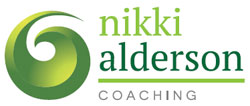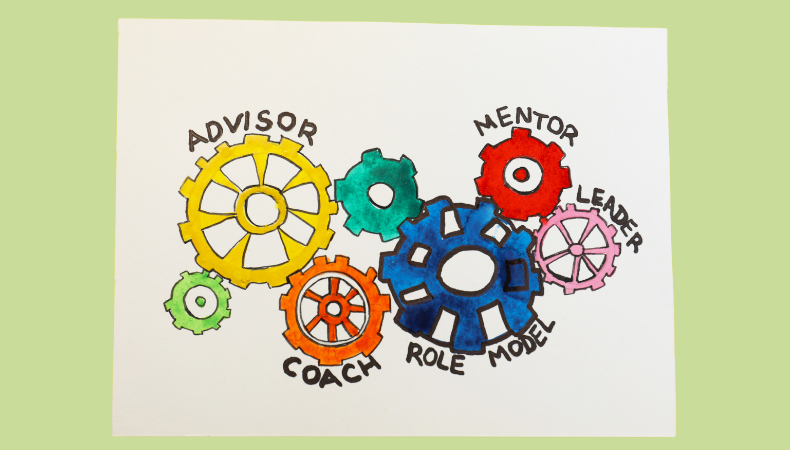Role Models v Mentors
It’s a well-established fact that with positive role models or mentors, people experience improved performance and greater satisfaction and achievement at work, and beyond.
I’ve written about mentors before, in the context of leadership and coaching so, here, I turn the spotlight specifically onto role models: those people looked upon by others as examples to follow and, ultimately, imitate or mirror.
Role Model Benefits
The benefits to having a role model are clearly demonstrated here: The Amazon and Gallup Role Models Matter report, 2023, based on data from nearly 4000 adults in the early to mid-stages of their careers, identified increased career fulfilment, including satisfaction around pay and positive feelings around career security, common to those with a role model compared to those without. Similarly, those with role models, particularly women, experienced a greater likelihood of having careers in STEM and better paid jobs.
Benefits specific to women in law
Further, a Canadian study, from the Dept of Sociology, Calgary University (2001), focussing specifically on the power of mentorship for female lawyers, found that career satisfaction (due to positive work life balance, leading them to want to remain within the legal profession) AND career success (specifically around income levels and promotion opportunities) followed where a positive role model existed, as opposed to it did not.
What Role Modelling means to others
Identifying who exactly is a positive role model, and what their common characteristics are, has proved a little more difficult to pinpoint. Researching this piece, in an effort to isolate characteristics common to all role models, it was interesting to have conversations with numerous different people, (young, old, male, female) about what a role model looked like to them.
No top 3 characteristics leapt out: It became crystal clear that role models are lots of different things to many different people.
Examples from whom to learn
My daughter talked about Rob Burrows, Kevin Sinfield and Malal Yousaf. My middle son struggled with the task generally, but then settled upon Tiger Woods. I then thought about role models myself.
Obvious ones came up, like Michelle Obama and Jacinda Arderne. Then the slightly more edgy ones – e.g. Mary Portas. Then downright controversial ones (Maggie Thatcher). Legal ones are a pleasure to recount: Lady Brenda Hale; Baroness Helena Kennedy; Cherie Booth KC; Ruth Bader-Ginsburg.
But the focus on such celebrated household names can distract us.
Role models within our midst
There are role models within our midst: The unsung heroes that my little one talked about, like the great-grandparents who fought in the War. (It happened to be D-Day when the conversations about role models began). Those who work alongside us and that we admire. Friends or family members that we respect and look up to.
The accidental role models too: Under-dog-come-societal-champions like Rosa Parks, and those of her ilk, whose spontaneous courage caused them to become role models to so many, albeit it inadvertently so.
Common Characteristics
What characteristics might bind together such trail blazers, rain makers, glass-ceiling smashers, and ordinary folk turned reluctant heroines or legends?
What’s clear is that kindness or charisma, initially thought to be common attributes, don’t actually feature across the board. Instead, (admittedly making a very non-scientific effort at) a Social Media poll I ran on the topic, across Linkedin and X, tried with more precision to identify specifically what did.
Poll Position
The question asked was: What predominant qualities does a positive role model display?
With the fascinating response as follows: Ability to…
- Lead or influence 6%
- Motivate and inspire 80%
- Remain relatable 14%
Personal to all
I guess it stands to reason, just as horses for courses, that individually we all look to that someone, or thing, to motivate and inspire us: For some it may be kindness, for others, formidability. Some need relatability, whilst others look to strength of character, courage to speak up, determination, resilience and the like, or a clear, commendable, and single-minded purpose.
Whatever it may be, the traits that set them apart are exactly that – things for which people are put on someone else’s pedestal, as a specific example of a way of being to emulate and follow, to adopt and consequently rise.
Reflect and explore for yourself
Allow yourself some reflection time:
- Who inspires you? Who are YOUR role models?
- To whom are you a role model? Is it a conscious or more unconscious state of being?
- What could you do more of or how could you further develop or grow from your own role models to become a better one yourself?
Coming to your own Conclusions and taking action as a result
Only you can answer those questions posed for yourself, in light of your own leadership qualities, and ability to motivate. Whether one remains relatable remains perhaps a matter of debate.
- How might you behave from here to inspire others, those future generations to come?
- More to the point, what WILL you NOW do, specifically, to bring them with you?
Final Word
Finally, whilst discussing the topic of role models, it would be remiss, in the month of his tragic and untimely death, not to mention Rob Burrows, and his final message:
“Whatever your personal battles be brave and face it. Every single day is precious. Don’t waste a moment. In a world full of adversity, we must dare to dream.”
About what is it that YOU dream? How will you turn that dream into reality?
Nikki Alderson Biography
Nikki Alderson, specialist coach, speaker and author, and former Criminal Barrister with 19 years’ experience:
- supports organisations, law firms and barristers’ Chambers to retain female talent; and
- empowers female lawyers to achieve career ambitions.
Nikki specialises in 3 areas:
- Women leadership transition and change;
- Enhanced career break returner support; and
- Workplace resilience, mental toughness, confidence and wellness.
She is the author of Amazon No.1 Bestseller Raising the Bar: empowering female lawyers through coaching, (https://amzn.to/3fodKQX) nominee for the Inspirational Women Awards, Champion of the Year Category and finalist in the 2020 Women in Law Awards, Legal Services Innovator of the Year and 2019 International Coaching Awards, International Coach of the Year Category.

